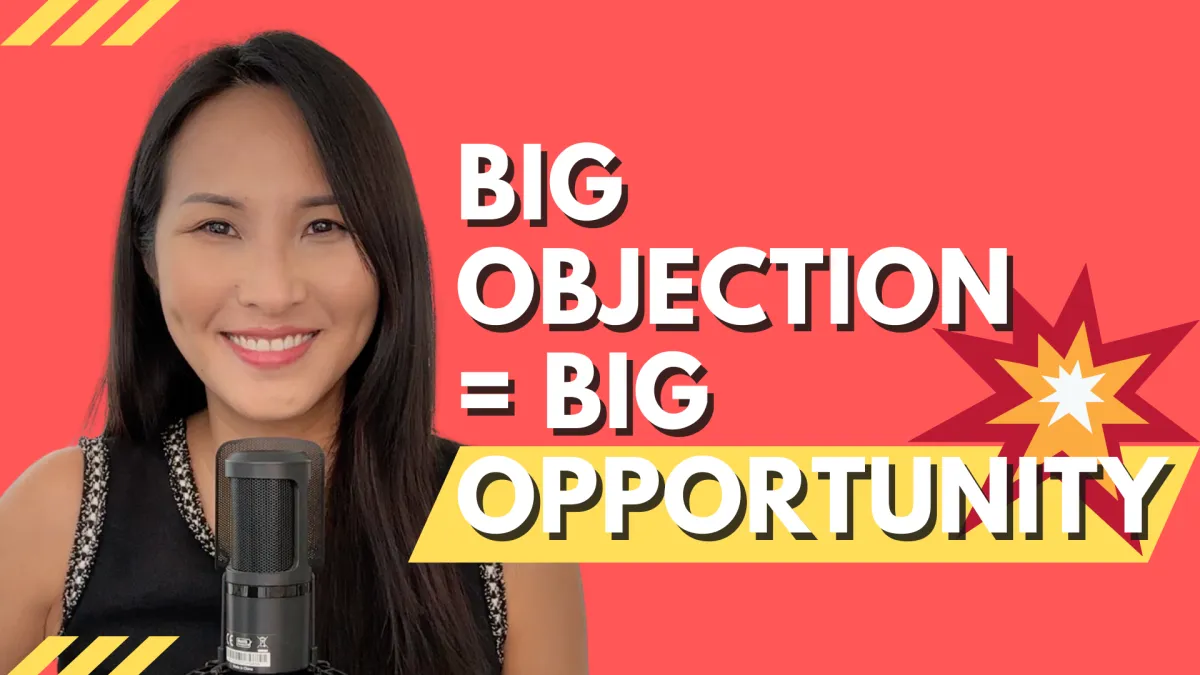
How to Handle the Dreaded "We're Fine, Thanks" Objection in Sales #127
You finally get someone on a call. You’ve prepped your pitch. You're ready to wow them.
But then it comes:
"We're fine, thanks."
Ouch.
It’s not a price objection. It’s not even a real rejection.
It’s incumbency—they already have a solution and they’re not interested in hearing about yours.
So how do you handle this one?
How do you not get swatted away like an annoying fly?
Let’s break it down.
Why They Say "We’re Fine, Thanks" (And What’s Actually Going On)
This brush-off often happens right at the beginning of your call or DM. And it usually has nothing to do with you or your offer.
Here’s what’s really happening:
They’ve already made a decision in the past—and they’ve moved on.
They’re busy. They don’t have the bandwidth to think about switching.
Change feels risky. What if they make the wrong choice? What if it reflects badly on them?
They may have a relationship with the current provider—and don’t want the awkwardness of “breaking up.”
In short, they’re not fine. They’re just comfortable.
And comfort is the enemy of change.
So How Do You Get Them to Listen?
You’ve got just a few seconds to either break through—or get brushed off.
Here’s what works:
1. Start with the right question:
Instead of asking, “Is this a good time?”
Ask: “Is this a bad time?”
It’s a subtle shift—but it changes everything.
Most people say no to "Is this a bad time?"
Why? Because they’re already on the phone, and it’s harder to justify hanging up.
If it is a bad time, they’ll tell you—and now you’ve opened the door to a follow-up.
2. Name-drop if you can:
Use a mutual contact or familiar name to anchor your introduction.
Example:
“Hi Jane, this is Michelle from AMPLY. Grace Ng suggested I give you a call. Is this a bad time?”
Even if Grace Ng didn’t explicitly refer you, you can soften it:
“I was thinking about Grace Ng, and it might be completely off base, but I thought I’d give you a call...”
This disarms them. It makes you human. And it piques curiosity.
3. Have a clear, low-pressure reason for calling:
If they ask, “What’s this about?”—be ready.
Some examples:
“Grace thought you might be interested in the approach we’re using to manage her social media—it’s saving her a ton of time.”
“We’re offering free appraisals next week while we’re in your area—would Tuesday or Wednesday work?”
“I just published some new research on XYZ, and I thought you might find it useful.”
The goal here isn’t to close a deal.
It’s to get a small yes—an email, a calendar booking, or simply permission to follow up.
4. Use disarming language:
Phrases like:
These reduce resistance and make your message more relatable.
Want More Sales Strategies That Actually Work?
This video (and blog) is just a small sample of what I teach inside Momentum—my coaching membership for entrepreneurs who want to sell smarter, show up confidently, and grow their business with proven systems.
Inside Momentum, you’ll get:
👉 Ready to turn objections into opportunities?
Join Momentum today at momboss.academy/momentum
Remember, objections like “We’re fine, thanks” aren’t walls—they’re just automatic responses.
With a little empathy, strategy, and the right words, you can break through.
And that’s exactly what we do, together, inside Momentum.







